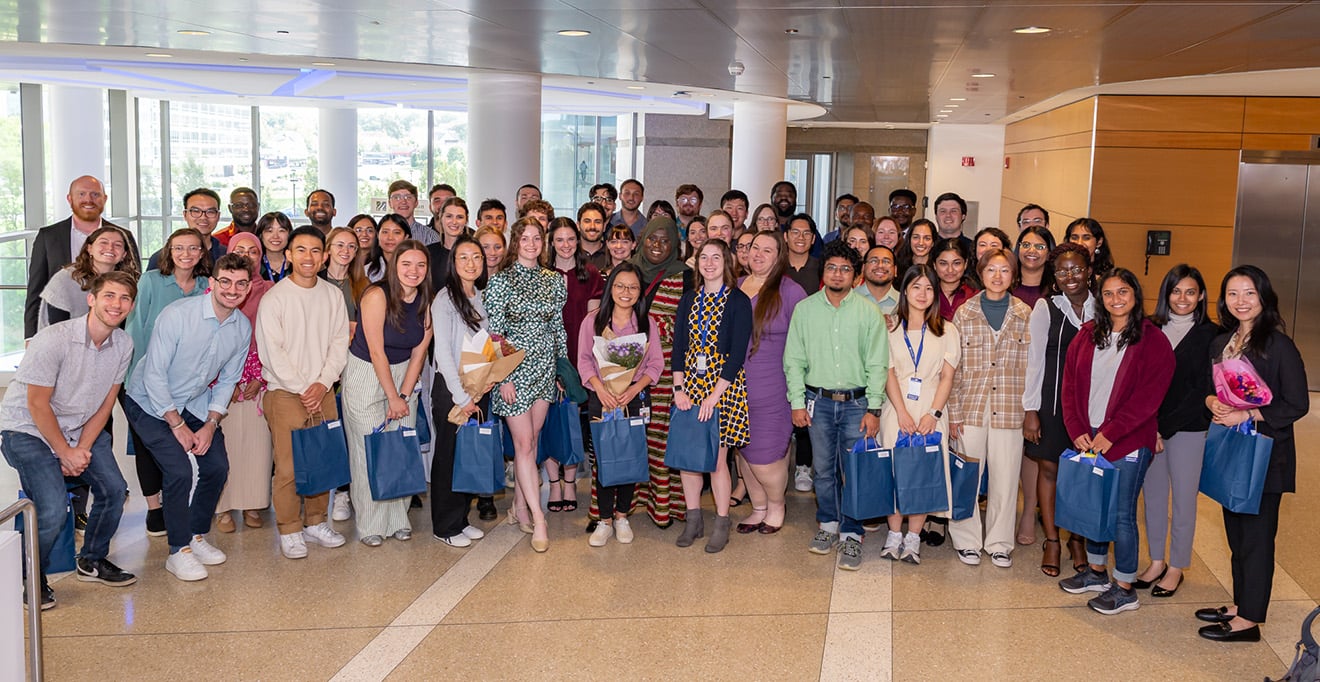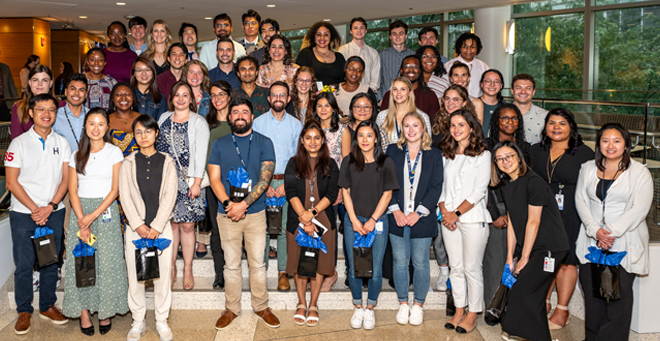Michelle Kelliher, Ph.D.
|
Professor & Executive Vice Chair |
 |
|
| Ph.D.: 1991, Tufts University | ||
| Postdoctoral research: Harvard Medical School | ||
| Office: | UMass Chan Medical School 364 Plantation Street, LRB-528 Worcester, MA 01605 |
|
| Phone: | 508-856-8620 | |
| Email: | Michelle.Kelliher@umassmed.edu | |
Research
My laboratory focuses on the mechanisms of leukemic transformation and on how cell death influences tissue homeostasis and inflammation. In our cell death research, we focus on how RIP kinases (RIPK) determine the type of cell death (apoptosis or necroptosis) and how these decisions affect immune homeostasis.
We have also developed mouse and human models of T cell acute lymphoblastic leukemia (T-ALL) to identify targeted and immune based therapies for children with relapsed T-ALL. Since dexamethasone resistance is a known prognostic indicator, we have performed a genome-wide shRNA screen and revealed several novel dexamethasone resistance genes. Our long-term goal is to inhibit these dexamethasone resistance genes/pathways to re-sensitize relapsed patients to dexamethasone treatment.
View a complete list of Dr. Kelliher's published work
Rotation Projects
Identify regulatory phosphorylation sites on RIPK1.
Examine effect of RIPK1 deficiency in adult endothelial cells.
Examine RIPK1 kinase inactive mice in sepsis and inflammatory disease models.
Use single cell qPCR to purify the mouse leukemia-initiating cell (L-IC).
Positions Available
Graduate student and postdoctoral fellow positions are currently available.
Postdoctoral positions are available in the Kelliher lab at the UMass Chan Medical School in inflammation and cell death and leukemogenesis. In both research areas we use the mouse as a model system. We are interested in how RIPK1 maintains tissue homeostasis and prevents inflammation. We are currently focused on how necroptosis of hematopoietic stem and progenitor cells contributes to bone marrow failure (BMF) syndromes. We are focused on identifying the ligands (TNF, Fas, type I and II IFN) responsible for the cell death and inflammation in BMF patients. In our leukemia research program, we have developed genetically engineered mouse models of T cell acute lymphoblastic leukemia (T-ALL) and patient-derived xenograft models of T-ALL and early thymic progenitor (ETP)-ALL. Our goal is to develop targeted therapies for treatment resistant leukemia patients. An additional goal is to understand the molecular basis of resistance to dexamethasone and NOTCH inhibitors.
For examples of our approaches see:
Nature (2014) 513:90-4.
PNAS (2014) 110:14436-41.
Nature Genetics (2014) 46:364-70.
Cancer Discovery (2014) 4:1074-87.
Blood (2014) 123: 1040-50.
Applicants must be highly motivated with strong molecular biology skills and hold a PhD in a related area of study. Mouse experience is beneficial but not required.
Please email CV and reprints of relevant publications to Michelle Kelliher, PhD
UMass Chan News Highlights
-
 Read more
Read more -

Sharing of knowledge, ideas celebrated during Qualifying Exam Recognition Ceremony
Read more -

Robert Caricchio, Michelle Kelliher and Celia Schiffer appointed to endowed chairs
Read more